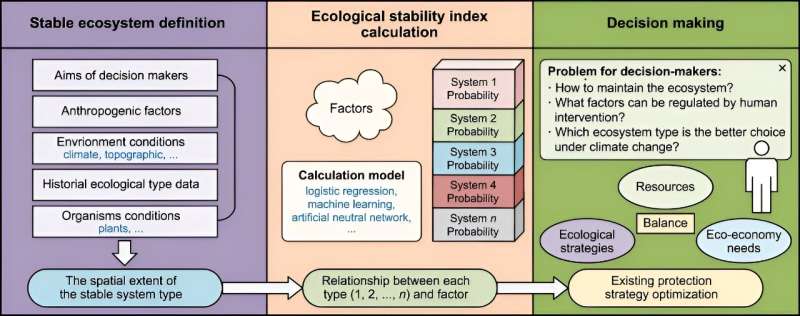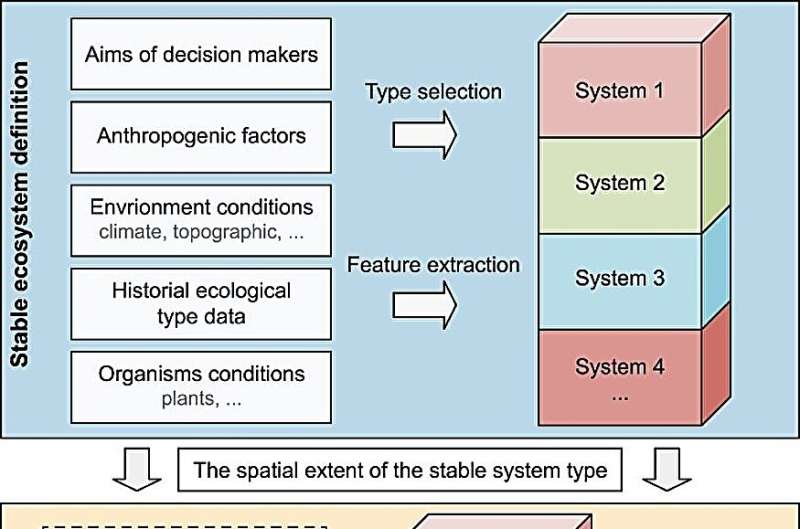This article has been reviewed according to Science X's editorial process and policies. Editors have highlighted the following attributes while ensuring the content's credibility:
fact-checked
proofread
Landscape-based methodology reveals ecological stability in the Qingzang plateau

In a study published in Environmental Science and Ecotechnology, researchers from the Chinese Academy of Sciences introduced a landscape-oriented framework to assess ecological stability in China's Qingzang Plateau (QP). The QP demonstrated a medium-high stability level with minimal changes in recent years.
Ecological stability involves understanding changes in ecosystem components over time, with two major concepts explored: systems close to equilibrium and non-equilibrium behavior. Despite lacking a consensus on the definition of "ecological stability", stability indices are widely used in ecological studies, including community and landscape stability analyses.
Large-scale studies face data challenges, prompting researchers to develop improvised models. The landscape-oriented perspective captures the steady state among ecosystems, enabling the proposal of a framework for assessing ecological stability in remote regions. Results show different patterns of ecological stability across QP's landscape types, with forests and wetlands exhibiting higher stability than grasslands.
Anthropogenic factors have a volatile impact due to policy changes and economic development, while climatic factors remain consistently influential. The study recommends site-specific ecological conservation and restoration measures. The assessment framework proves valuable for understanding the link between environmental conditions and ecosystems, identifying critical factors for ecological maintenance in each landscape type.
Stable ecosystems are crucial for global sustainable development, and the landscape-based framework fills gaps in ecological stability research and applications. It offers valuable information for decision-making on ecological conservation and restoration, suggesting nature-based solutions for landscapes with high ecological stability and natural restoration for those facing declining stability.

In conclusion, this innovative landscape-based framework is a significant step towards understanding and maintaining ecological stability. It has practical implications for sustainable development and conservation efforts in the Qingzang Plateau and other remote regions. The study's methodology sets a standard for comparing different ecological stability assessments, providing a unified approach to address global environmental challenges.
More information: Da Lü et al, A landscape persistence-based methodological framework for assessing ecological stability, Environmental Science and Ecotechnology (2023). DOI: 10.1016/j.ese.2023.100300
Provided by Chinese Society for Environmental Sciences





















